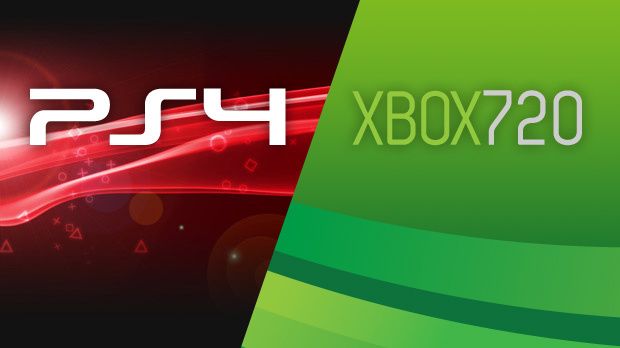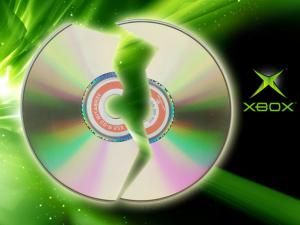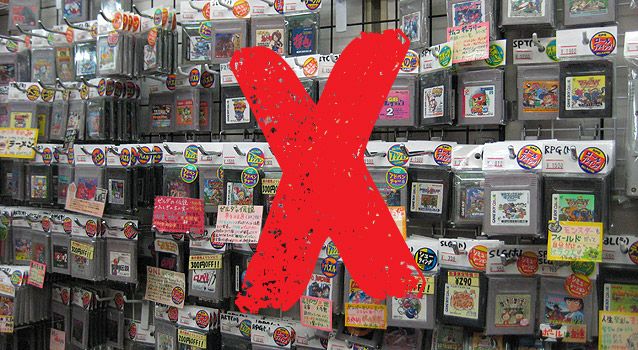This post has not been edited by the GamesBeat staff. Opinions by GamesBeat community writers do not necessarily reflect those of the staff.

The current generation of consoles (that being the seventh) currently holds the record for the longest running life span of consoles to date. Microsoft's Xbox 360, Sony's PlayStation 3, and Nintendo's Wii have been the dominant video game consoles for seven years — much longer than most people expected and longer than many have hoped.
With year 2012 finally reaching its end, gamers have been anxiously awaiting any sign of eighth generation consoles to ease their minds of any further speculation.
So far, Nintendo’s Wii U remains the only confirmed entry, slated for release this November. As for Sony’s next PlayStation and Microsoft’s successor to the Xbox 360, rumors floating through cyberspace are about all any of us have read, with no confirmed release dates of any sort.
Commentators, however, have predicted that these two elusive consoles will show up some time around 2013 or 2014.
As we're talking about the eighth generation of video game consoles, it's logical to assume that they both will feature some of the most capable processors the gaming universe has seen thus far, allowing for the usual advancements in graphics and sound that we experience with every new generation. But the few actual mentions of a new PlayStation and Xbox, from various sources, have not exactly been the most reassuring.
In fact, two of the most vigorously spread rumors have been instilling a sense of anxiety in gamers more than anything else and have us asking: "Why the hell would they even think about doing that?"
Microsoft’s next Xbox will not be equipped with a disc drive
This can only lead us to believe that all future games to be released on this console will be downloadable only. Of course, Xbox Live already gives us the option to download full games to our hard drives, but doing so takes up quite a large amount of digital storage space.
As for Sony, while they have been reported to have considered not installing a disc drive to their forthcoming console, their ultimate decision was said to go the opposite path and include one after all.
It has been assumed that if the newest Xbox were to lack a disc drive that the console would be preequipped with an enormously large hard drive to compensate for what will undoubtedly be hundreds — maybe thousands — of gigabytes filling our console's memory to the brim. There is also a chance that players will eventually have to spend more money on external memory devices when that hard drive is out of space.
On another note, not all gamers are able to bring their consoles online. Already, we have about 10 to 20 percent of the gaming community scratched off of the chart who may be completely unable to buy any new games whatsoever. In this case, what reason would any of these gamers have to even buy one of these new consoles in the first place?
Microsoft and Sony would only be digging their own graves with a reckless move like this (or the graves of their gaming department at least).
Even for those of us who do have online access for our consoles, many of us still — and will always — cherish the feeling and experience of going out to our favorite video game shop, buying a game, and being able to hold it in our hands.
Anyway, enough of that cheesiness. Let’s talk about how this would affect the gaming business. GameStop, Best Buy, or any store you could possibly think of that sells video games would be losing quite a bit of profit if games were no longer sold in physical form. This can be said especially for GameStop; if we no longer need to go out and buy games anymore, we no longer need their services. In other words, GameStop would be dead.
Now, even if you happen to be one of those devoted GameStop haters, you cannot deny the amount of jobs lost … the number of hard working employees who would be out of their jobs if this unfortunate event were to occur.
Next generation consoles will not support used games
Yes, according to rumor, gamers will not be able to play used games on their new consoles and will be required to pay full price for a new game every time they buy one.
How is it possible that a console could block you from running a game that is used? There are a few theories out there, the most popular being that next generation consoles will require you to sign in to an online account.
As you already know, current consoles already have optional (and quite popualr) online accounts in the form of Xbox Live and PlayStation Network. The successors to these would not give you a choice — your console would have to connect to the internet, and gamers would have to sign up and pay for their console’s corresponding network.
This actually further supports the earlier "no disc drive" rumor; if gamers were required to download their games, then used games would no longer even be an option.
This new form of online gaming accounts would be able to track which games you have played and would be able to tell whether or not you are the title's original owner.
It is believed that the online network would assign the first-and-only player as the designated owner of that particular copy of the game. If someone else were to obtain that copy as used and attempt to play it in his console, he presumably would be locked out from playing it entirely unless he was to pay $60 for his own new one.
As gamers, we know it’s a fact that we are not always willing to pay $60 or more for a new game and will often wait a few months to get the a particular title in used condition and at a reduced price.
Needless to say, if next generation consoles were to operate on a "no used games" policy, we would pretty much be forced to buy every single one of our games new and at their unmerciful full price.
With numerous $60 major releases being put out every month, we may in fact end up having to pay around $120 to $240 a month.
This again has it’s effect on the video game market. Stores such as GameStop make the majority of their profits form selling used games. So here we are again, sentencing more businesses to death.
Conclusion
Gamers are expected to cough up even more of their hard-earned cash for their games than ever before. Next generation video games have been predicted to rise in price, going from an already steep $60 to a painful $70 or even $80 (throw the earlier $120 – $240 theory out the window; in this case, we would be spending far more each month).
Also, consoles in general may be facing some stiff competition form smartphones and tablets, and let’s not forget the upcoming Android console, the Ouya, and the fabled Steam console — whatever that may turn out to be.
In reality, it’s hard to say whether or not these unsettling rumors will turn out to be the truth. Consoles with no disc drives and unsupported used games may in turn backfire on both Sony and Microsoft, seeing as though gamers may abandon their consoles if they happen to face these unfortunate fates.
However, we as gamers have witnessed firsthand the ever inflating greed of Microsoft and Sony, so lovingly referred to as "evil empires" in the past (with the likes of disc-locked downloadable content, $10 online passes, and what not).
Looking at it from a perspective such as this makes the rumors appear far more likely to be true to most of our dismay.
We also have to keep in mind, though, that if one of these two ruling companies were to decide on either not including a disc drive or not allowing players to play used games, there is a fair chance that the other one will not.
Picture it this way: Microsoft sets their sights on locking their customers out of playing used games. Now Sony, foreseeing the mistake, rushes to do the opposite and allows their next PlayStation to do so, or vice versa. Not only will they allow this feature, but they will market their console on it.
Sony: "What's that gamers? Microsoft doesn't want you to save money and buy used games? Well, we do! Our new PlayStation features full and unrestricted support for your used games!"
If events were to indeed play out in this manner, many of us would be seen abandoning our long time consoles — we may have no choice but to switch over to a new brand — or worse: Many of us may be forced into gaming retirement.
Yes, that may seem harshly dramatic, but think about it. If playing video games is something you love to do but one day becomes too much of a grueling hassle, would you retain the will to play?
As disheartening as this whole fiasco sounds, we have to keep in mind that rumors have been — and will always be — relentlessly spread like a virus only to be proved false in the end most of the time. And yes, while the gaming community has had countless grievances with the industry in the past, history shows that we will most likely continue to buy games despite our own complaints.
While the video game industry in recent years has shown almost one too many signs of greed and corruption toward their loyal customers, us tried-and-true, lifelong gamers know in our hearts (as deep down as that may be) that next generation consoles still have a chance to reach and surpass all of our expectations, be they positive or negative.
As of now, all we can do is cross our blistered fingers and hope for the best.


